Filter by
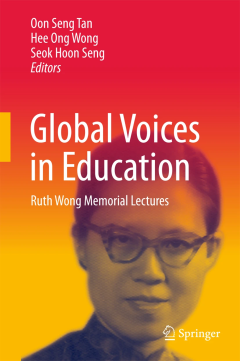
Global Voices in Education
This book brings together selected lectures given by eminent educationalists in memory of Ruth Wong, an influential figure in the field of education. The lectures represent the powerful ideas seeded by Dr Wong and address the challenges of education in Singapore’s journey from a textbook case of poor education to a world-class educational system. The educational standard that we enjoy today w…
- Edition
- -
- ISBN/ISSN
- 978-981-287-681-2
- Collation
- XXII, 207
- Series Title
- -
- Call Number
- 370 GLO
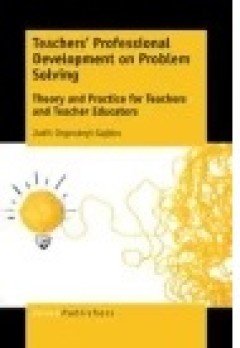
Teachers’ Professional Development on Problem Solving
Since teaching is a practical activity, efficient problem-solving skill is one of the fundamental competencies teachers need to possess. All teachers face challenging school situations during teaching-learning process no matter where they teach or since when. Despite similarities appearing on the surface, every school situation is unique and depends on several internal and external factors that…
- Edition
- -
- ISBN/ISSN
- 978-94-6300-711-5
- Collation
- X, 134
- Series Title
- -
- Call Number
- -
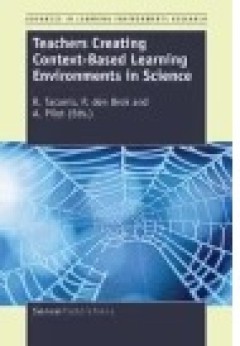
Teachers Creating Context-Based Learning Environments in Science
"Context-based science education has led to the transformation of science education in countries all over the world, with changes also visible in learning environments and how these are being shaped. These changes involve authentic problems on research and design, new types of interactions within communities of practice, new content areas and also new challenges for teachers in teaching, motiva…
- Edition
- -
- ISBN/ISSN
- 978-94-6300-684-2
- Collation
- VIII, 254
- Series Title
- Advances in Learning Environments Research
- Call Number
- -
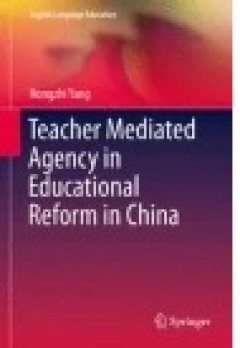
Teacher Mediated Agency in Educational Reform in China
This book examines teacher agency in implementing English as a Foreign Language (EFL) curriculum reform in the Chinese university context. It theorizes the concept of teacher agency from a sociocultural theory perspective and draws on a study conducted in a conservative and less developed area in China. The book uses Engeström's activity theory and Vygotsky's concept of the Zone of Proximal De…
- Edition
- -
- ISBN/ISSN
- 978-3-319-15925-6
- Collation
- XV, 213
- Series Title
- English Language Education
- Call Number
- -
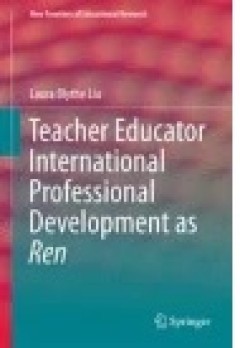
Teacher Educator International Professional Development as Ren
Teacher-educator international professional development involves personal and professional, research- and practice-oriented, and pragmatic and aesthetic growth. This text encourages teacher educators to explore this work as Ren, or benevolent human beings, in cultivating global professional communities. As faculties engage in Ren as a vital 21st century form of development, new insights may eme…
- Edition
- -
- ISBN/ISSN
- 978-3-662-46971-2
- Collation
- XIII, 120
- Series Title
- New Frontiers of Educational Research
- Call Number
- -
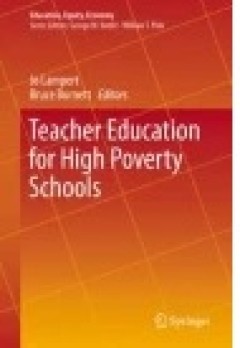
Teacher Education for High Poverty Schools
This volume captures the innovative, theory-based, and grounded work being done by established scholars who are interrogating how teacher education can prepare teachers to work in challenging and diverse high-poverty settings. It offers articles from the US, Australia, Canada, the UK and Chile by some of the most significant scholars in the field. Internationally, research suggests that effecti…
- Edition
- -
- ISBN/ISSN
- 978-3-319-22059-8
- Collation
- VIII, 251
- Series Title
- Education, Equity, Economy
- Call Number
- -
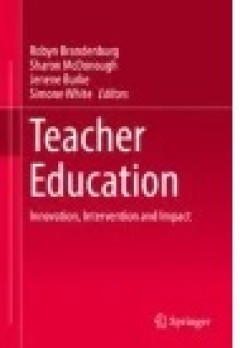
Teacher Education
This book, an inaugural publication from the Australian Teacher Education Association (ATEA), Teacher Education: Innovation, Intervention and Impact is both a product of, and seeks to contribute to, the changing global and political times in teacher education research. This book marks an historically significant shift in the collective work and outreach of the Australian Teacher Education Assoc…
- Edition
- -
- ISBN/ISSN
- 978-981-10-0785-9
- Collation
- XXIII, 269
- Series Title
- -
- Call Number
- -
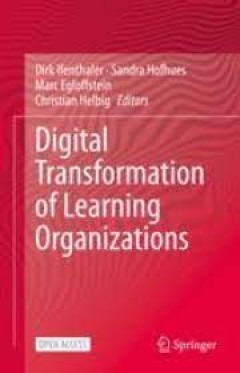
Digital Transformation of Learning Organizations
This open access volume provides insight into how organizations change through the adoption of digital technologies. Opportunities and challenges for individuals as well as the organization are addressed. It features four major themes: 1. Current research exploring the theoretical underpinnings of digital transformation of organizations. 2. Insights into available digital technologies as well a…
- Edition
- -
- ISBN/ISSN
- 978-3-030-55878-9
- Collation
- -
- Series Title
- -
- Call Number
- 370 DIR d
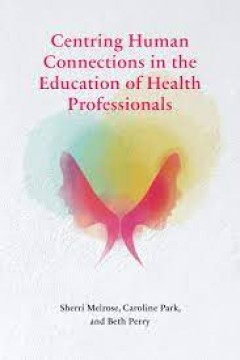
Centring Human Connections in the Education of Health Professionals
Centring Human Connections in the Education of Health Professionals equips educators working in clinical, classroom, and online settings with a variety of teaching strategies that facilitate essential human connections. Included is an overview of the educational theory that grounds the authors’ thinking, enabling the educators who employ the strategies included in the book to assess their fit…
- Edition
- -
- ISBN/ISSN
- 9781771992855.01
- Collation
- -
- Series Title
- -
- Call Number
- 166 pages

Centring Human Connections in the Education of Health Professionals
Centring Human Connections in the Education of Health Professionals equips educators working in clinical, classroom, and online settings with a variety of teaching strategies that facilitate essential human connections. Included is an overview of the educational theory that grounds the authors’ thinking, enabling the educators who employ the strategies included in the book to assess their fit…
- Edition
- -
- ISBN/ISSN
- 9781771992855.01
- Collation
- -
- Series Title
- -
- Call Number
- 166 pages
 Computer Science, Information & General Works
Computer Science, Information & General Works  Philosophy & Psychology
Philosophy & Psychology  Religion
Religion  Social Sciences
Social Sciences  Language
Language  Pure Science
Pure Science  Applied Sciences
Applied Sciences  Art & Recreation
Art & Recreation  Literature
Literature  History & Geography
History & Geography